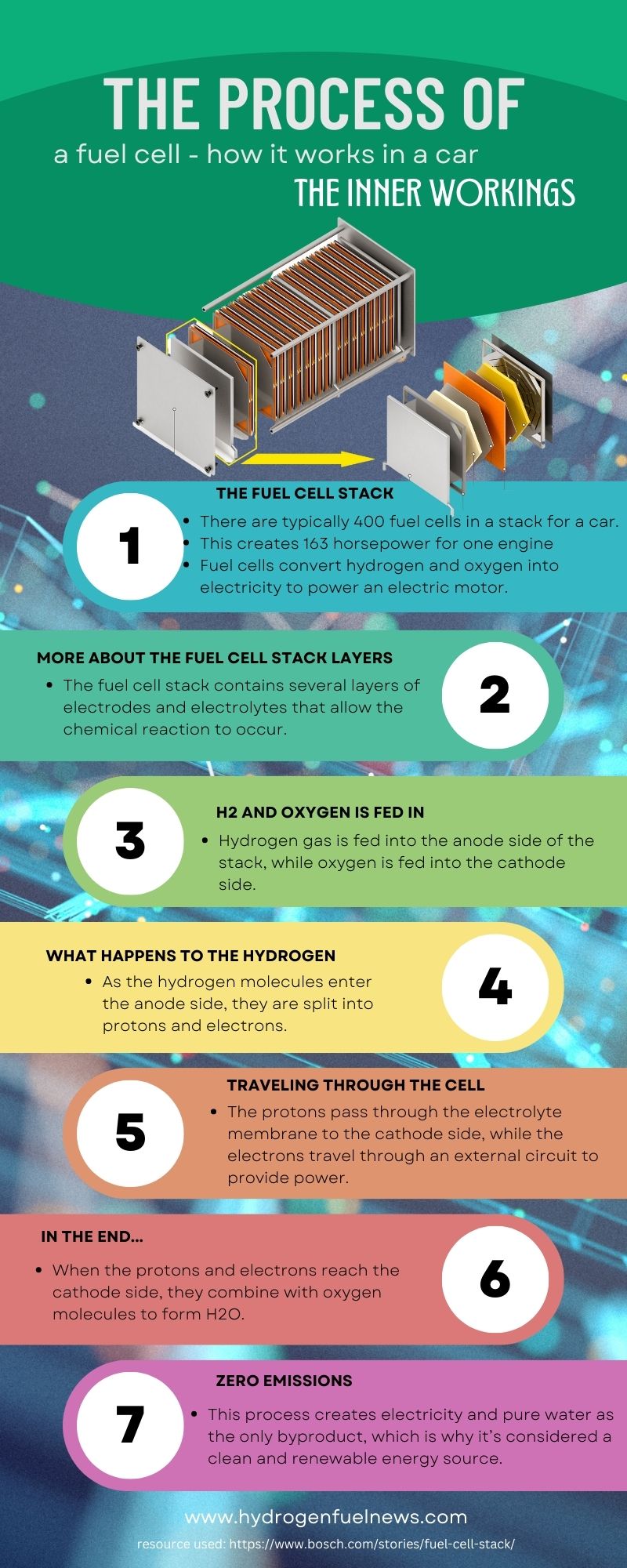Fuel cell vehicles aren’t anything new, but as much as technology has been pushing forward rapidly, they haven’t seen the explosive expansion of battery electric tech, particularly in the passenger car market. That said, the potential for H2 in transportation is massive and is expected to take off – imminently.
Examining a few key advancements in tank technology reveals their significant impact on the transportation industry as a whole.
These advanced hydrogen tanks, such as Hexagon Purus‘ Type 4 cylinders, are an improvement over earlier tank technologies in several ways:
Lightweight: The use of advanced composite materials, like carbon fiber and glass fiber reinforcements, makes these tanks lighter than their predecessors, which often used metal alloys. This weight reduction helps improve the overall efficiency and range of hydrogen fuel cell vehicles.
Durability: The composite materials used in these tanks offer high strength and resistance to fatigue, ensuring a longer lifespan and lower maintenance requirements compared to traditional metal tanks.
Safety: The plastic liner and composite reinforcements in Type 4 cylinders provide enhanced safety by reducing the risk of hydrogen leaks and withstanding high-pressure storage conditions.
Higher working pressure: These tanks can store hydrogen at pressures up to 950 bar (13,775 psi), enabling more hydrogen to be stored in a compact space and extending the driving range of fuel cell vehicles.
Customization: The advancements in tank technology allow for various sizes, capacities, and configurations, making them suitable for a wide range of applications, from personal vehicles to public transportation and even maritime uses.
The global shift to tackle climate change and seek environmental sustainability gives H2 an important role.
Zero-emission vehicles have become a central component in the discussion around decarbonization and battling climate change. As battery-electric technology isn’t necessarily the right fit for all applications, the development of hydrogen fuel cell vehicles is rising in importance. This is particularly true in areas where considerable power, short downtimes and long ranges are a necessity. This is also true about transportation occurring where the electric grid is unavailable or unreliable.
Though well behind battery electric passenger cars, hydrogen advancements are showing that this alternative to fossil fuels can be well suited to trucks, vans, buses, trains, aircraft, machinery, heavy-duty vehicles and even cargo ships.

The US market is starting to embrace hydrogen fuel cell vehicles and the advantages they offer.
Many companies are realizing that among zero-emission technologies currently available, hydrogen holds the most promise for their specific needs. That said, as a new technology that they have not tested alongside existing equipment and procedures, much of the current use of H2 in the United States is in the form of testing and pilot programs.
That said, with the successful completion of those test periods, the increasing familiarity and comfort with hydrogen, and the reducing cost associated with H2 technology and fuel – both due to increased use and government subsidies such as those through the Inflation Reduction Act in the United States, H2 is primed for mainstream use.
Who’s In?
Hydrogen fuel cell vehicles offer extensive range compared to battery electric models, and while battery electrics need recharging time, refueling H2 takes about as long as it would take to refuel a diesel tank. Among the companies currently leading the way in producing vehicles for this market include Daimler Truck AG, Toyota, Nikola Corporation, Hyundai, Hyzon Motors, and Honda. Other car makers like BMW and Volkswagen are also working on their own hydrogen car models – BMW came out with a limited edition of their iX5.
Hydrogen Technology and Financial Interest: The Perfect Fusion for Exponential Growth
As the US market begins to embrace hydrogen technology, industry leaders are making news headlines like in the recent monumental signing of a Memorandum of Understanding between Toyota Motor Company, Hino Motors Ltd., Daimler Truck Holding AG, and Mitsubishi Fuso Truck and Bus Corporation. This event highlights the importance of collaboration in accelerating the development of advanced, green vehicle technologies. As hydrogen vehicles gain momentum and investment, their potential to revolutionize transportation and contribute to a more sustainable world becomes increasingly evident. With the support of government subsidies, successful pilot programs, and growing familiarity with hydrogen technology, H2 is poised to become a mainstream solution for clean mobility on a global scale.
How a fuel cell stack works…
